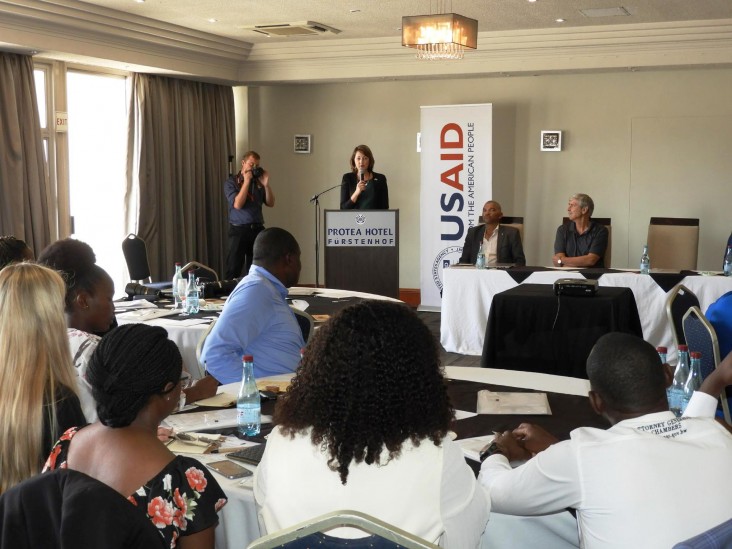Press Release Shim
Speeches Shim

For Immediate Release
Windhoek – On February 14, 2018, U.S. Ambassador Lisa Johnson addressed the participants of the Regional Judiciary and Prosecutor Workshop at the Protea Hotel Fuerstenhof in Windhoek. Sponsored by the Combating Wildlife Crime (CWC) in Namibia and the Kavango-Zambezi (KAZA) Area program, which is funded by the U.S. Government through the United States Agency for International Development (USAID), the workshop was hosted by program implementers, the World Wildlife Fund (WWF) Namibia and TRAFFIC in collaboration with the Kavango-Zambezi (KAZA) Secretariat.
The workshop was designed to build the capacity of prosecutors and the judiciary to prosecute wildlife crime. The workshop also emphasized the serious implications of wildlife crime on regional security, stability and economic development. In her closing remarks, Ambassador Johnson highlighted the importance of international cooperation: “By its very nature, illegal wildlife trade is conducted across borders and addressing it requires international and regional cooperation.” Ambassador Johnson also echoed the U.S. Government’s commitment to curb wildlife crime by strengthening domestic and global enforcement, reducing demand for illegally traded wildlife at home and abroad and strengthening partnerships to combat illegal wildlife poaching and trafficking.
The workshop increased understanding that wildlife crime is organized crime and provided a platform for prosecutors and magistrates from the KAZA countries to build working relationships in fighting transnational wildlife crime. This has already yielded dividends for Namibia and Angola in the investigation of the trafficking of rhino horn. Prosecutors and magistrates across the participating countries also identified barriers to transboundary cooperation and considered potential solutions to improve prosecutions and adjudication of wildlife crime cases. In delivering a note of thanks on behalf of the participants, Onkemetse Daniel Pitso from Botswana said “A siloed approach cannot and will not achieve anything in our fight against wildlife crime. We need greater collaboration.”
The CWC in Namibia and the KAZA Area program counters wildlife crime and trafficking in the five KAZA countries, namely, Angola, Botswana, Namibia, Zambia, and Zimbabwe. Activities support: 1) improved coordination along the law enforcement chain, from anti-poaching and anti-trafficking through adjudication, with an emphasis on transboundary and international cooperation; 2) effective behavior change, including support to communities living near priority protected areas to engage with enforcement to stop wildlife crime, and 3) improved policy and enabling environments to combat wildlife crime and trafficking.
Related Press Releases
- Young Namibian Women Graduate as Ambassadors for U.S.-funded DREAMS Program
- U.S. Ambassador announces US$89 million for HIV prevention, care, and treatment in 2021 from the U.S. President’s Emergency Plan for AIDS Relief (PEPFAR)
- U.S. Food Assistance Enables 4,000 Namibian HIV Patients to Resume Treatment

Comment
Make a general inquiry or suggest an improvement.